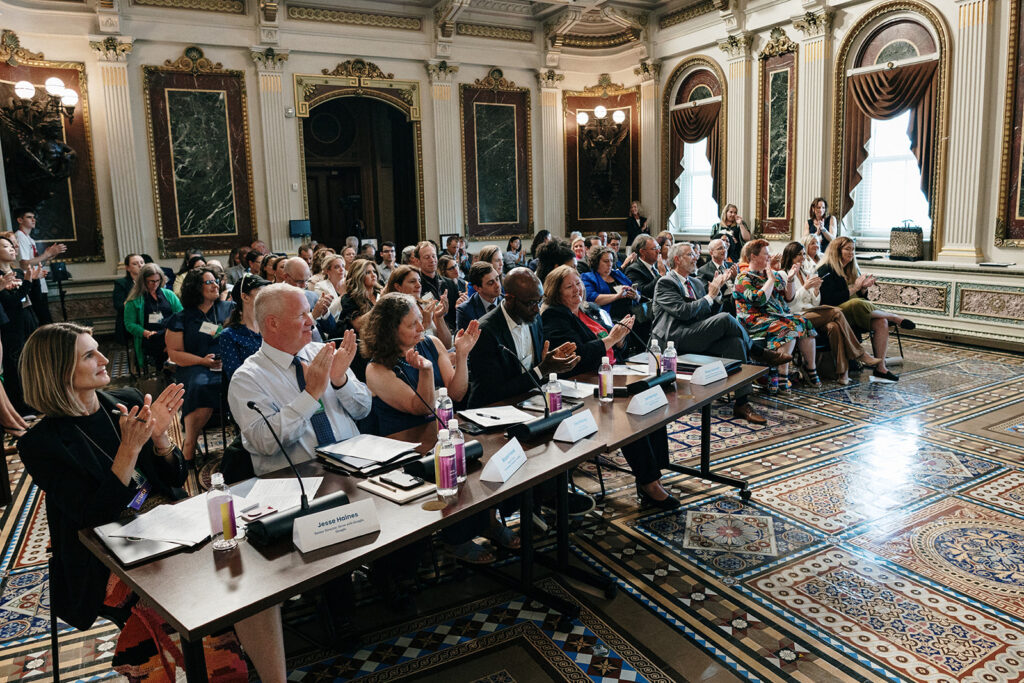
This July, the five finalist teams traveled to Washington, D.C. to present their technology education programs at the White House. For this showcase event, the Rural Tech Project convened the challenge judges and education leaders to hear the teams’ presentations. The event was a culminating moment of this $600,000 challenge to advance technology education in rural high schools.
For the past two academic years, the finalist teams have run and refined their technology education programs. The five programs are all notably distinct, addressing the unique needs of their students and the economic demands of their local communities. During the presentations, the audience learned each team’s vision for readying their students for high-demand career pathways — from computer science, cybersecurity, and tech entrepreneurship to agricultural technology and aviation. Teams shared student achievements and program highlights, including work-based learning opportunities provided, industry credentials earned, and dual-credit college classes established.
As the finalist teams await the grand-prize winner announcement, they continue to plan for the growth and sustainability of these innovative programs. The showcase provided a critical opportunity to connect with federal policymakers, potential funders, and other experts as they broaden their networks of support. Attendees represented some of the largest philanthropic organizations in the United States, the world’s biggest tech companies, and leading rural development groups. The teams’ presentations provided insight into how these communities seized on the challenge opportunity to unlock their creativity and serve their students with inspiring new competency-based technology education programs.
Speakers point to the power of rural America
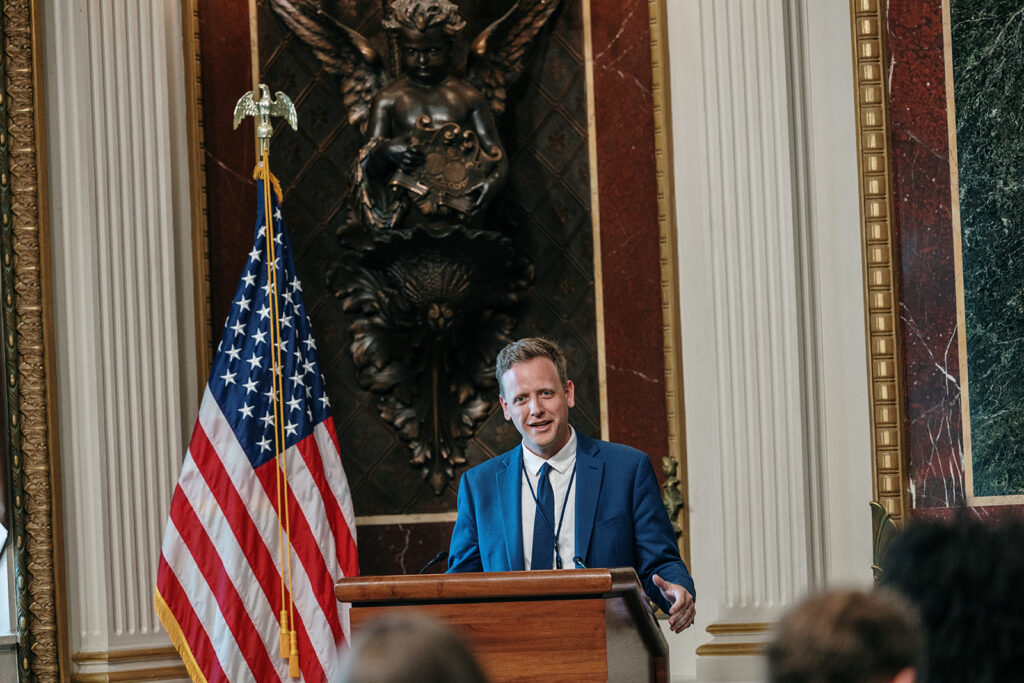
Will McIntee, Senior Advisor for Public Engagement at the White House, welcomed attendees, speaking to how the finalist teams’ work through the Rural Tech Project aligns closely to President Biden’s vision for rural America. He discussed priorities for creating new economic opportunities and the critical rural infrastructure investments already underway.
President Biden knows that when rural America thrives, all of America thrives. And today in too many rural communities, young people feel that they have to leave home to find opportunity. The President believes that no community, regardless of ZIP code, should be left behind.
Will McIntee, Senior Advisor for Public Engagement, The White House
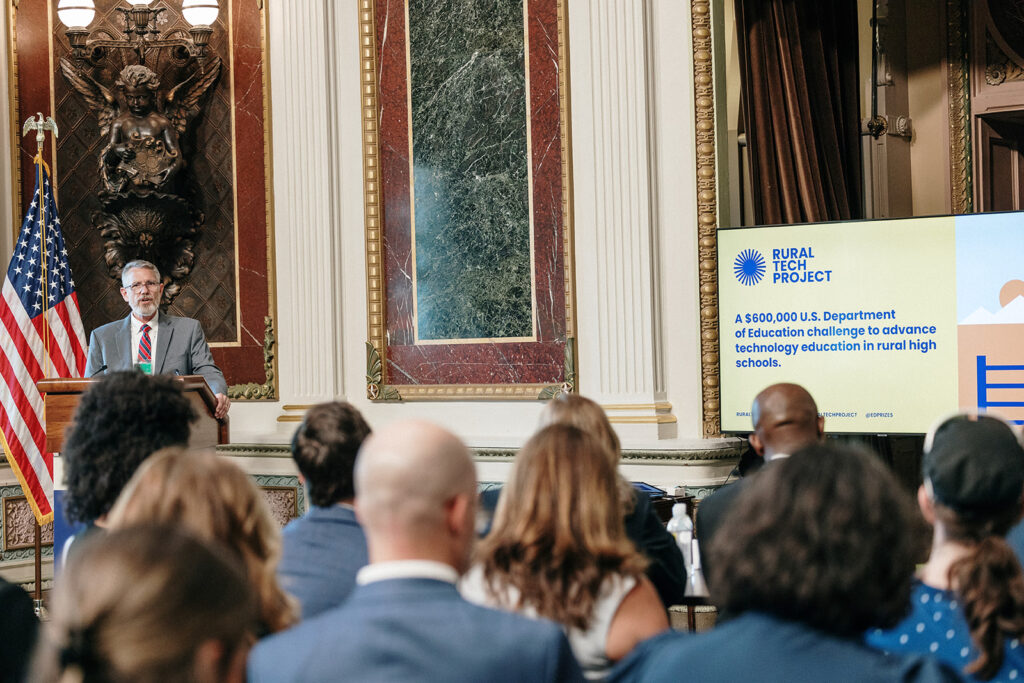
Jim Means, the first speaker from the U.S. Department of Education, grounded attendees in the Department’s goal to help high school students everywhere build the advanced technology skills that our economy demands. He shared how the Rural Tech Project has supported educators in creating high-impact learning experiences for their students that draw on immersive, hands-on projects and real industry training.
All rural communities are a little different, and we know that educators of those communities are uniquely positioned to design distinctive programs that will capture the interests of their students and meet their learning needs. We want to empower rural educators with resources to make those programs a reality.
Jim Means, Education Program Specialist, U.S. Department of Education
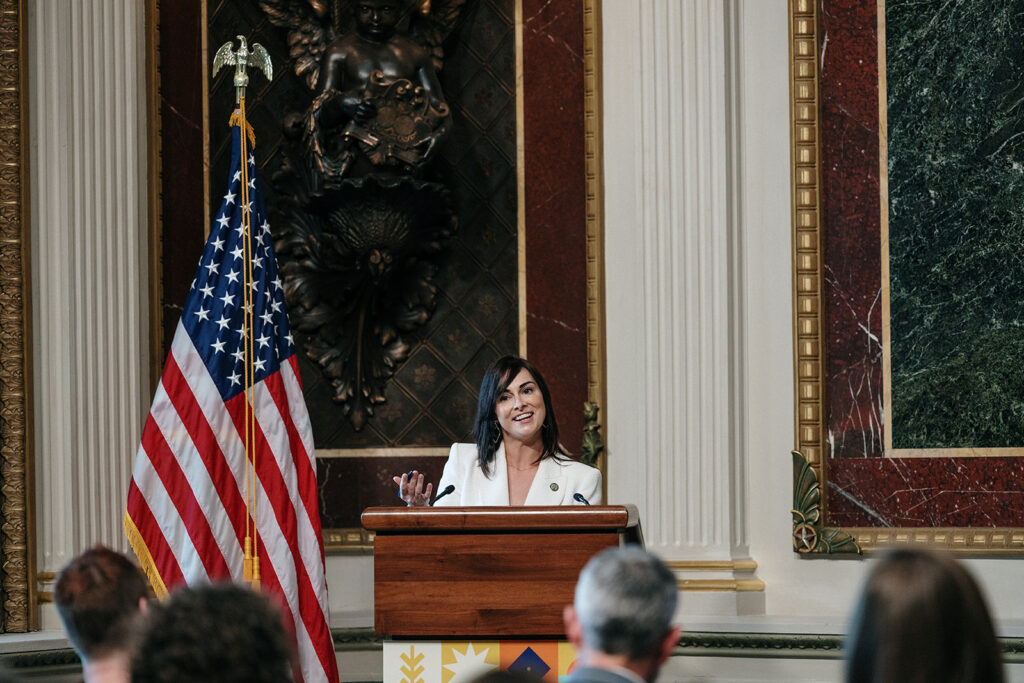
Monica Logothetis, Senior Advisor for Innovation, Office of the Deputy Secretary at the U.S. Department of Education, reflected on the tremendous impact of the finalist teams’ programs and shared insight into the bipartisan initiative called Raise the Bar: Lead the World. She celebrated the hard work from the teams to provide students real-world experiences that directly translate to career readiness, from gaining college credit to earning industry credentials.
One of the key goals of Raise the Bar is to ensure that every single student has the opportunity and qualifications to seize a high-demand career when they hit the job market. So how do we accomplish this? We accomplish this by reimagining how we think about education and leaning harder into what we refer to as career-connected learning.
Monica Logothetis, Senior Advisor for Innovation, Office of the Deputy Secretary, U.S. Department of Education
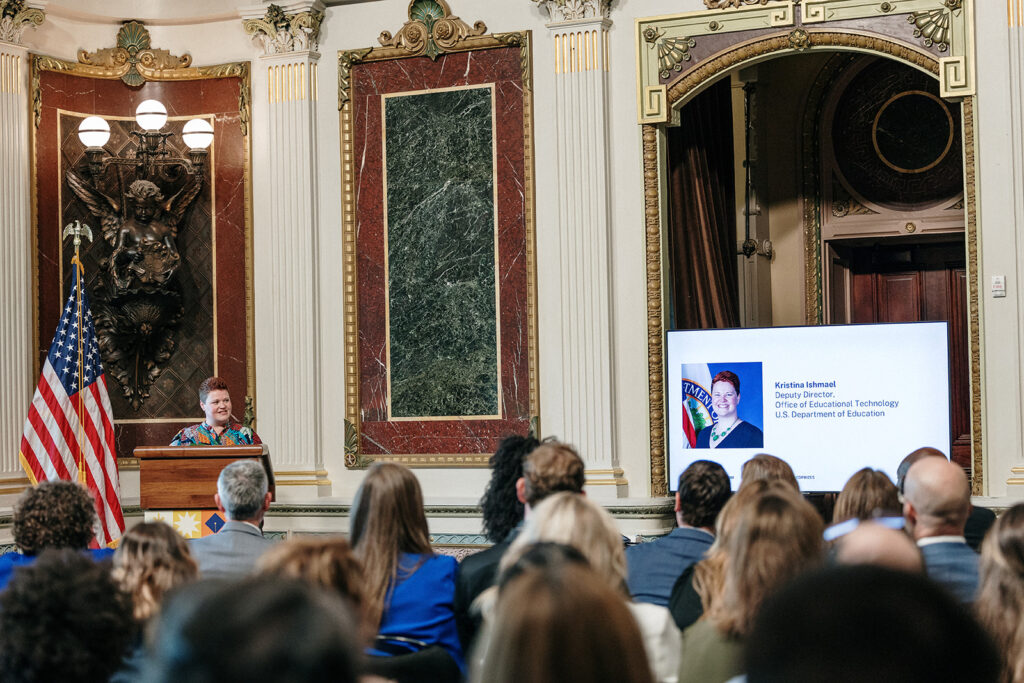
Kristina Ishmael, Deputy Director, Office of Educational Technology at the U.S. Department of Education, introduced her team’s work establishing a vision for how tech can be used to transform teaching and learning and how to make everywhere, all-the-time learning possible. She highlighted the intersection of their digital equity priorities with the Rural Tech Project programs, particularly to ensure rural students have equitable access and opportunities.
We also know that we face the potential of the ‘brain drain’ in rural areas. So we are seeing more tech companies pay attention to folks in rural areas and say, well first of all, it’s a little bit cheaper in these rural areas. Second of all, there’s a lot of land that we might be able to build some lovely facilities. And then third, we’re going to need the employees to be able to join us there. So your projects are perfectly aligned to prepare our learners to go into these spaces.
Kristina Ishmael, Deputy Director, Office of Educational Technology, U.S. Department of Education
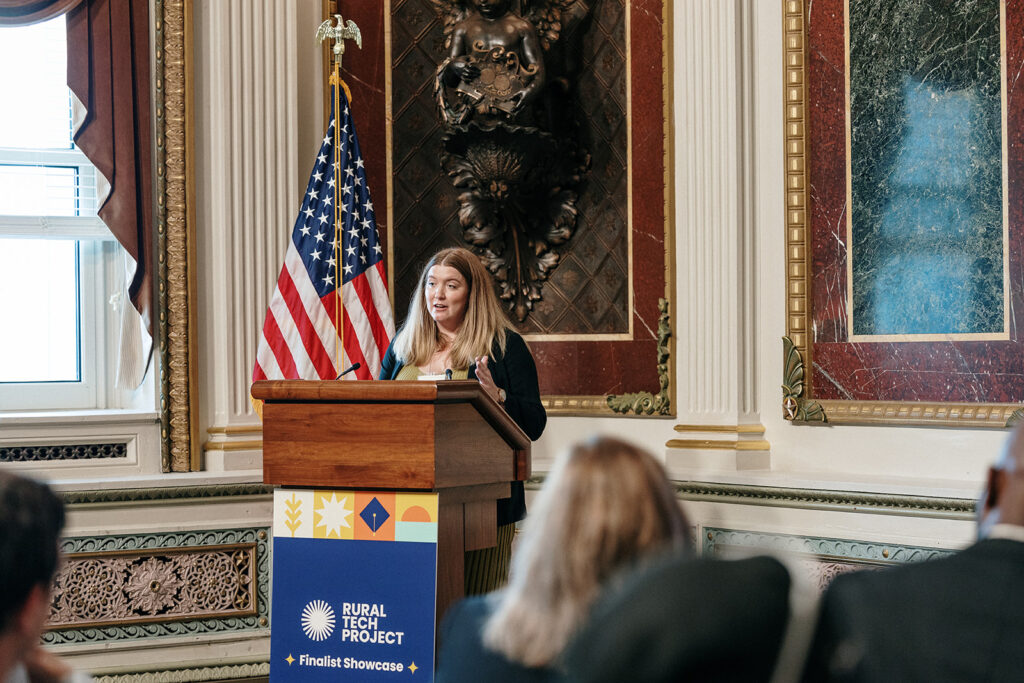
Julia Cunningham, the closing speaker from the U.S. Department of Education, talked to attendees about the Rural Partners Network. This initiative, co-led by the U.S. Department of Agriculture and the White House Domestic Policy Council, helps rural communities find resources and funding to create jobs, build infrastructure, and support long-term economic stability. She highlighted the network’s closely-aligned mission to the Rural Tech Project — particularly in how the challenge emphasized the opportunity for rural communities to reimagine technology education on their own terms, for their own communities.
And each of the projects you will see here are crucially important — not only for the direct impact that they are going to have on the students that they serve — but for the health and sustainability of their communities at large.
Julia Cunningham, Director of Rural Engagement, U.S. Department of Education
Finalist teams share their inspiration, creativity, and impact
Each finalist team took the floor to share their program, what they learned, and their plans for the future. They also answered questions from the judges to aid the judging panel as they recommend a grand-prize winner.
The work that each of you has done in your communities is critical to the President’s vision for rural communities. And so we’re just so grateful for your leadership and partnership on these issues and the work that you put into these projects. We’re really looking forward to hearing more about all the incredible work that you’re doing. And of course, we look forward to continuing to partner with you and your communities as you continue this work after today.
Will McIntee, Senior Advisor for Public Engagement, The White House
iLEAD Academy | Carrollton, Kentucky
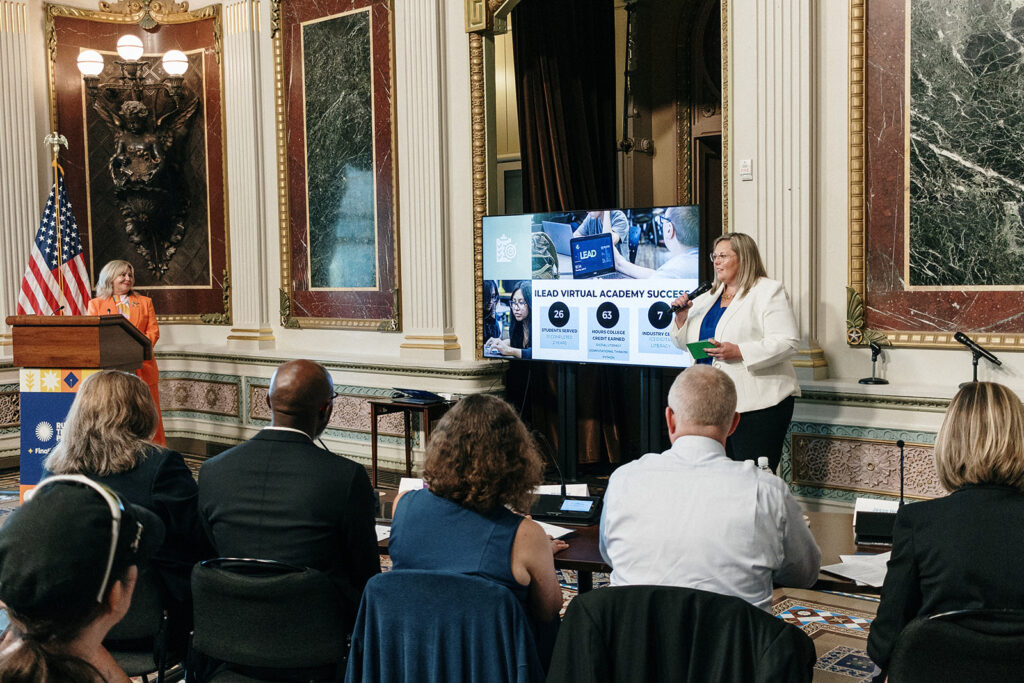
iLEAD’s Virtual Computer Science Career Academy offers students across five high schools the opportunity to take virtual, dual-credit courses leading to the completion of computer science degrees.
Premont Independent School District | Premont, Texas
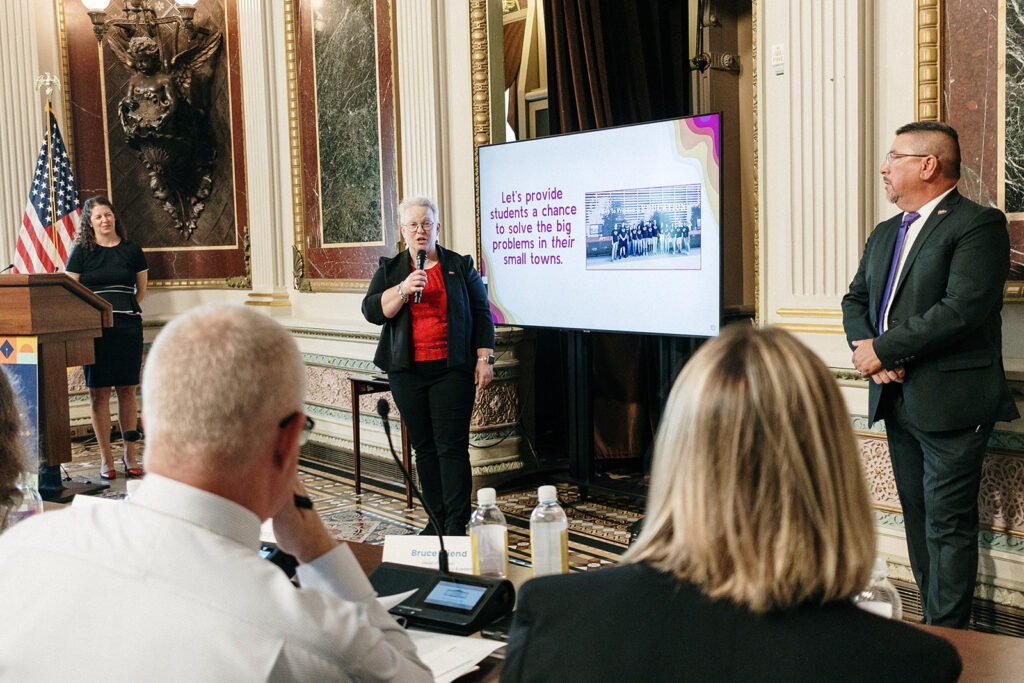
Premont’s Leaders in Future Technology (LIFT) Startup Incubator helps students learn about technology and use it to solve real-world problems in their community.
Louisa County Public Schools | Mineral, Virginia
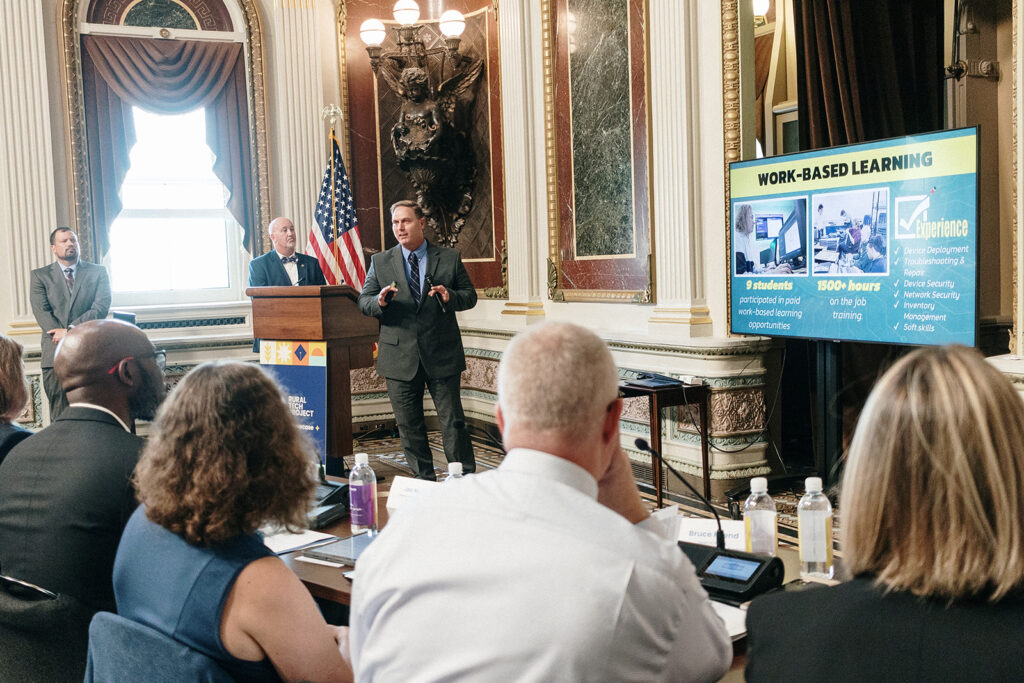
Louisa’s Cybersecurity Program prepares students to meet a critical need in the workforce through sequential, high-quality coursework, work-based learning, and leading industry certifications.
Ravenna Public Schools | Ravenna, Michigan
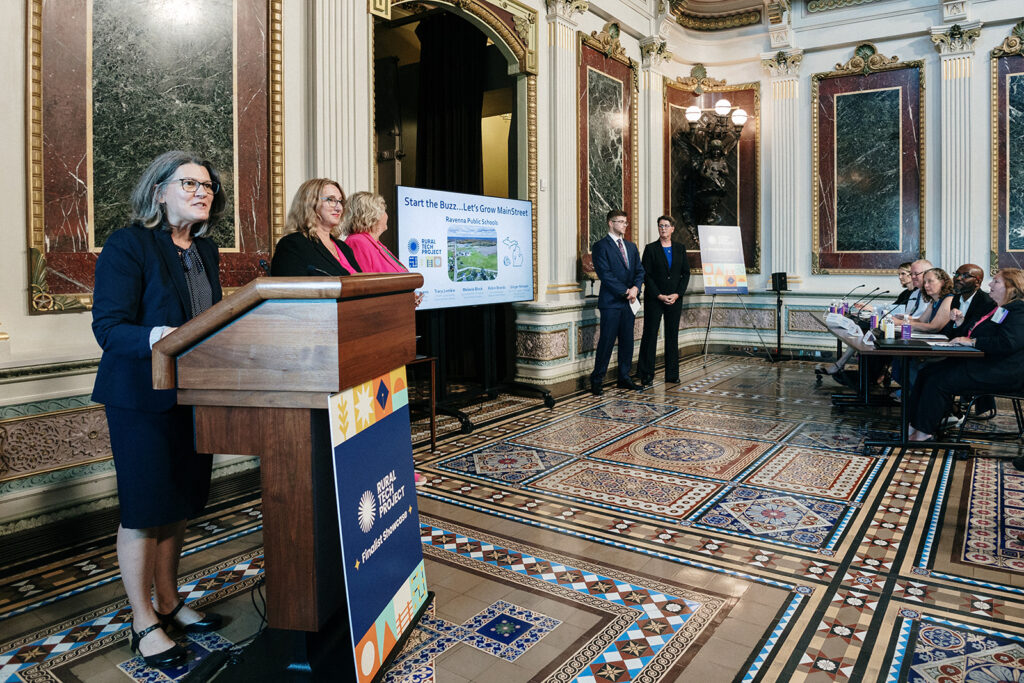
Ravenna’s Grow MainStreet project empowers students to develop competencies and build portfolio experiences in technology, science, and business — with the goal of stimulating economic growth within the Ravenna agricultural community.
Woodlake High School | Woodlake, California
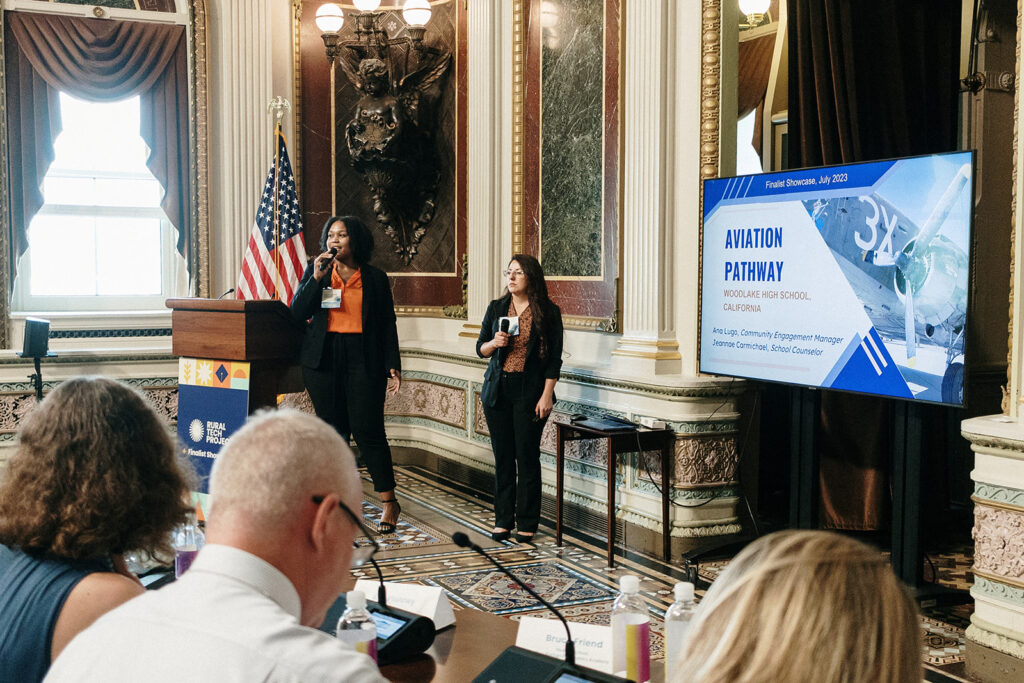
Woodlake’s Aviation Pathway prepares students for regional aviation careers or postsecondary degrees, utilizing drone operations, geometry, and aerodynamic principles.
What comes next: grand-prize winner announcement and publicly available resources
Following the showcase, the judges are deliberating to recommend a grand-prize winner, who will receive an additional $100,000. The U.S. Department of Education expects to announce the winner in early fall 2023. The Rural Tech Project is also working with the finalist teams to compile and publish their lessons learned as a resource for other communities. The teams have all demonstrated that rural communities are powerful centers for educational innovation; their program models can be adapted by other schools across the country to create technology education programs that increase access to careers across industries.